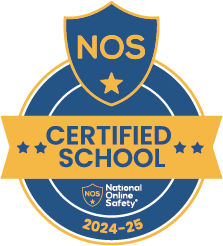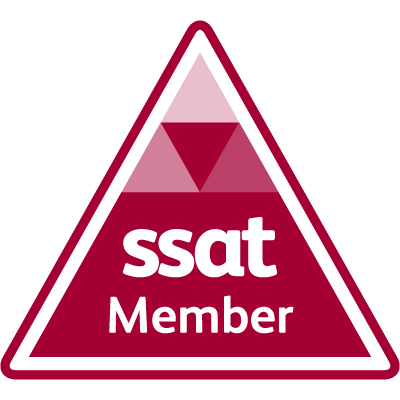PSHE
Curriculum Lead
Miss S. Hodges – Deputy Headteacher
Key Stage 3 & 4
Subject Overview
To provide pupils with the knowledge, understanding, attitudes, values and skills they need in order to reach their potential as individuals and within the community.
Pupils are encouraged to take part in a wide range of activities and experiences across and beyond the curriculum, contributing fully to the life of their school and communities. In doing so, they learn to recognise their own worth, work well with others and become increasingly responsible for their own learning. They reflect on their experiences and understand how they are developing personally and socially, tackling many of the spiritual, moral, social and cultural issues that are part of growing up.
They learn to understand and respect our common humanity; diversity and differences so that they can go on to form the effective, fulfilling relationships that are an essential part of life and learning.
In our school we choose to deliver Personal, Social, Health Education using the Cre8tive programme as this suits the needs of our students but elements of both PSHE and RSE are threaded through the whole curriculum.
This programme is complemented by our SMILE curriculum, assemblies, external speakers and tutor time activities
Objectives/Student learning intentions:
Our programme of study will support the development of the skills, attitudes, values and behaviour, which enable pupils to:
- Have a sense of purpose
- Value self and others
- Form relationships
- Make and act on informed decisions
- Communicate effectively
- Work with others
- Respond to challenge
- Be an active partner in their own learning
- Be active citizens within the local community
- Explore issues related to living in a democratic society
- Become healthy and fulfilled individuals
The aims of relationships and sex education (RSE) at our school are to:
- Provide a framework in which sensitive discussions can take place
- Prepare pupils for puberty, and give them an understanding of sexual development and the importance of health and hygiene
- Help pupils develop feelings of self-respect, confidence and empathy
- Create a positive culture around issues of sexuality and relationships
- Teach pupils the correct vocabulary to describe themselves and their bodies
Curriculum Map
Key Stage 5
Subject Overview
Our KS5 PSHE provision aims to educate and inform our sixth form students on issues linked to their next steps and the exciting new stages in life they are experiencing as they become young adults, these include sessions on topics such as; planning for the future, personal finance, sexual health, respect in relationships, mental health and wellbeing, physical health and drugs and their risks.
KS5 PSHE is delivered during form time by their form tutor and also utilises the Cre8tive programme and resources and is complemented through the use of assemblies and external speakers.
Objectives/Student learning intentions:
Our KS5 programme of study continues building upon topics from Key stages 3 and 4 to support the further development of the skills, attitudes, values and behaviour at an age-appropriate level and to address issues that our students may encounter as they become young adults and face new challenges. These topic areas will enable students to:
- Prepare for their next steps outside of the school setting
- Be an active partner in their own learning and future pathway
- Be active citizens within the local community
- Explore issues related to living in a democratic society
- Become healthy and fulfilled individuals
The aims of relationships and sex education (RSE) at our school for KS5 are to:
- Provide a framework in which sensitive discussions can take place
- Educate students with regards to the importance of sexual health and physical health
- Help pupils develop feelings of self-respect, confidence and empathy to therefore expect and give respect in relationships
- Create a positive culture around issues of sexuality and relationships
- Curriculum Map
Right to withdraw
Parents/carers have the right to request that their child be withdrawn from some or all of sex education delivered as part of statutory RSE (but cannot withdraw their child from Relationships or Health Education). At Cornwallis Academy we will be hosting a PSHE information evening with parents to discuss the benefits of receiving this important education and any detrimental effects that withdrawal might have on the child. We will respect the parents’ request to withdraw the child, up to and until three terms before the child turns 16. After that point, if the child wishes to receive sex education rather than be withdrawn, the school should make arrangements to provide the child with sex education during one of those terms. Parents/carers are not permitted to withdraw their child from the Sex Education included in the National Curriculum Science, as this is a statutory subject.
If a pupil is removed from sex education, it is the school’s responsibility to ensure that the pupil receives appropriate, purposeful education during the period of withdrawal. Please note that there is no right to withdraw from Relationships Education or Health Education for any student. If you are considering taking your child out of RSE lessons within PSHE Education, please consider the following:
- All the other students in your child’s class will have been taught this information and may well talk to your child about it and potentially mislead them or confuse them as a result. It may prove far better to allow experienced and sensitive teaching staff to teach your child in a progressive, developmental way that is grounded in research.
- They will be learning about sex and reproduction in Science lessons. The RSE in PSHE Education will echo this and will concentrate on teaching young people how to enjoy healthy relationships, improve self-esteem and self-confidence, and make healthy, informed choices. When viewed this way, it is hoped that RSE won’t be seen as contentious.
- Talk to Miss Hodges or any of the PSHE teachers. Often, when parents and carers find out what is in the PSHE Education curriculum, their fears are allayed as they can appreciate it is in the best interests of their child’s lifelong learning.





 Future Schools Trust
Future Schools Trust








